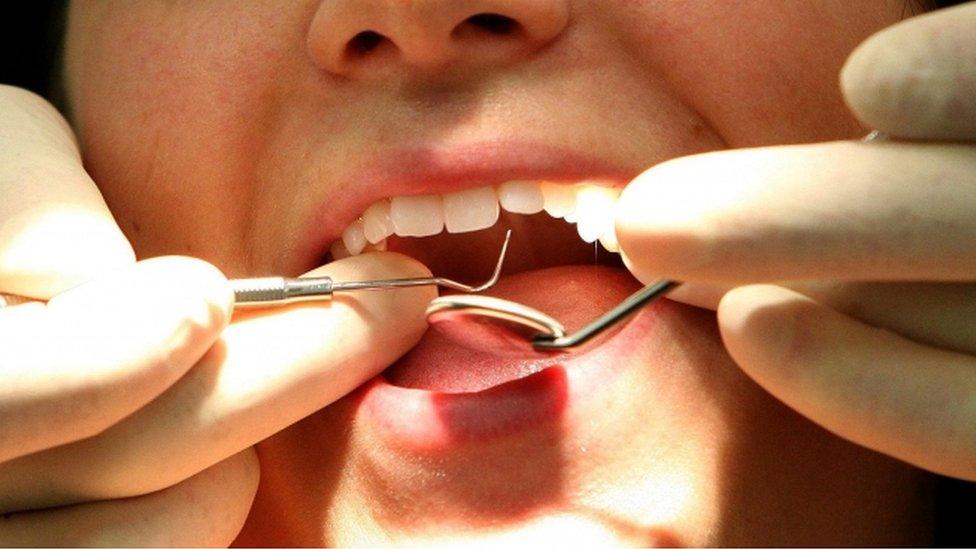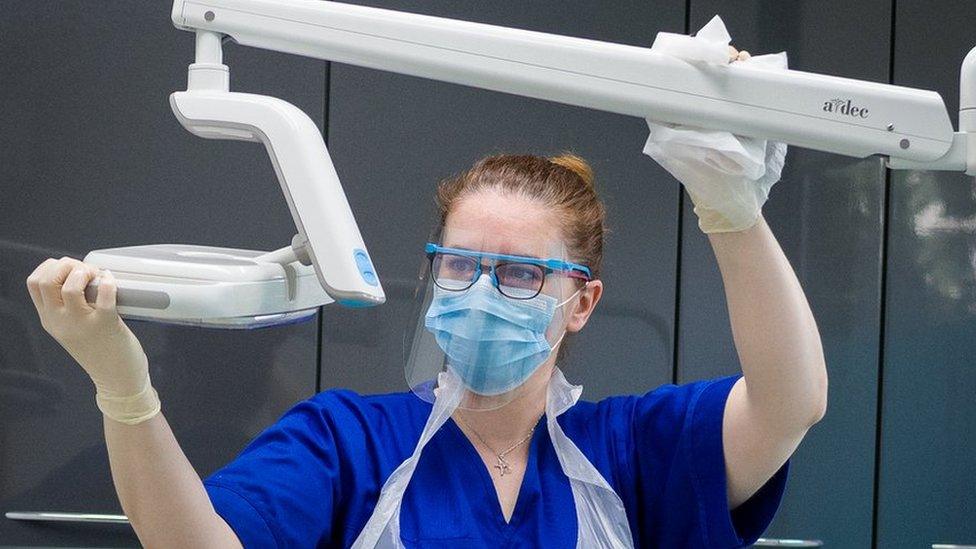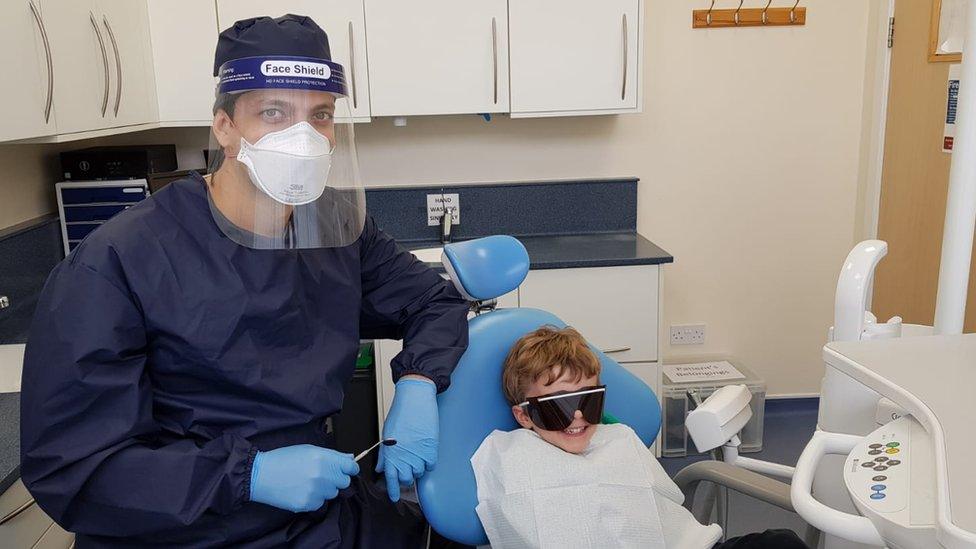My NHS dentist can fix my son's teeth - if we go private
- Published

When Sally Armstrong took her 16-year-old son for his first check-up after the lockdown rules began to ease, she was shocked to discover that he needed nine fillings.
She was equally stunned when her dentist told her that coronavirus restrictions meant the work could not be carried out on the NHS - but that he could do it privately.
The treatment, which would usually be free because of her son's age, would cost her £1,250.
"He wears braces and has not been cleaning his teeth properly because he couldn't get between his teeth with the floss," said Edinburgh mother-of-two Sally (not her real name).
"I started shouting at him in front of the dentist as I was so angry when I saw the bill.
"It's a terrible situation as normally fillings are free on the NHS for under-18s. I just cannot afford this."

The Scottish government's route map out of lockdown has seen a phased return of dental treatment in recent months.
NHS dentists can currently offer a limited range of services such as oral health checks and advice, X-rays, simple extractions and simple denture repairs.
They are allowed to offer temporary fillings - but only in an emergency, if the patient is in pain. However, that restriction does not apply to the private sector.
All dentists must follow protocols which include having a window open while using drills, having PPE, wearing a respiratory mask, and leaving a room fallow for one hour after any drilling stops.
So why are some services being offered to patients who are prepared to go private, but not by the same dentist on the NHS?
The menu of procedures which are allowed on the NHS are set out in the statement of dental remuneration. The number of procedures on that list has been cut from 600 to 80 due to the Covid restrictions.
But private dentistry does not have to follow those guidelines - which is why those same dentists can carry out certain procedures on patients who are prepared to go private.
The Scottish government says the independent healthcare sector, including dentists, had previously been told about the importance of "following the spirit of the route map".
Financial support
The owner of one dental practice in the Lothians, who wanted to remain anonymous, said she felt "in limbo".
Half her patients are on the NHS and the other half are private.
She said: "I have patients saying to me that we are creating a two-tier system, but that is just not the case.
"As an NHS dentist I am not allowed to do non-urgent aerosol procedures.
"The government has no say in what we do privately. The government does not financially support me for the private side of my business, so we need to work."

James Craig, a member of the Scottish Dental Association committee, says the system of NHS dentistry needs updating
The dentist said she had increased the cost of private procedures to cover the cost of investing in PPE.
Only two of the three dentists in the practice can work each day so they can leave one room free for aerosol drilling work.
"We will go bust if we don't work," she added. "I feel helpless but our hands are tied."
James Craig, a committee member of the Scottish Dental Association and owner of Currie Dental Care in Edinburgh, said many dentists operated mixed practices because they used the income from private patients to subsidise NHS treatment.
He said: "NHS dentistry operates by having a high volume of patients in a short space of time.
"It is a complicated system that needs revamped and updated. It is also the reason why it doesn't work in Covid times because you cannot deal with high volumes of patients."
Increasing treatments
He said dentists wanted to work with the Scottish government to plan a "financially viable" way forward.
"Without clarity from the Scottish government, we cannot properly inform our patients of what the future holds for NHS dentistry," he added.
The Scottish government said it had been increasing the range of dental treatments which were available with each phase of remobilisation of NHS dental services.
"This has culminated in reintroducing certain aerosol generated procedures (AGPs), including fillings for patients in need of urgent dental care, into NHS practice from 17 August," said a spokesman.
"In a letter to private healthcare providers on 1 June the national clinical director and the chief dental officer highlighted the importance of the entire independent healthcare sector, including independent dentists, following the spirit of the route map and supporting key public health messages."